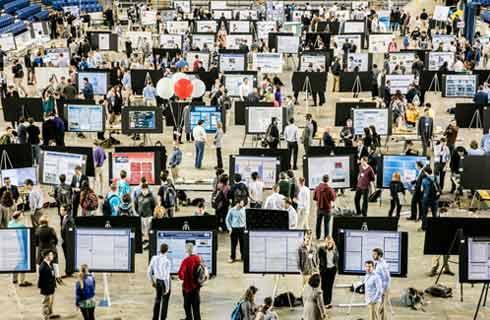- IDP China>
- 课程库>
- 自然科学>
- 生物与生物医学科学>
- 生物信息学>
- Bachelor of Science in Engineering in Computer Science and Engineering - Bioinformatics
Bachelor of Science in Engineering in Computer Science and Engineering - Bioinformatics

学历文凭
Bachelor Degree

专业院系
Department of Computer Science and Engineering

开学时间

课程时长

课程学费

国际学生入学条件
International applicants who have completed one year or more of full-time coursework at a post-secondary institution in the United States. The total amount of academic work completed must be officially graded by the registrar of that institution and have a cumulative GPA value of 3.0 or higher, excluding ESL curriculum.
International applicants who have received a degree from an international post-secondary institution whose language of instruction is English. Official documentation will be required from the institution's Registrar's office stating that the medium of instruction for the degree received was English.
International applicants who have achieved 510 or higher on the Evidence-Based Reading and Writing section of the SAT or 24 or higher on the English, Reading, and Composite on the ACT.
International English Language Testing System (IELTS), or Duolingo are required for International applicants whose primary language is not English. The minimum score requirement for the TOEFL is 550 (paper-based), 213 (computer-based), or 79 (internet-based), minimum score requirement for the IELTS exam is 6.5, minimum Duolingo score requirement is 100. Test scores must be sent directly to the University of Connecticut from the respective test provider.
IDP—雅思考试联合主办方

雅思考试总分
6.5
- 雅思总分:6.5
- 托福网考总分:79
- 托福笔试总分:550
- 其他语言考试:Duolingo score requirement is 100
CRICOS代码:
申请截止日期: 请与IDP联系 以获取详细信息。
课程简介
相关申请
 预科
预科 奖学金
奖学金 实习机会
实习机会 在校学习
在校学习 跨境学习
跨境学习 校园授课-线上开始
校园授课-线上开始 在线/远程学习
在线/远程学习
开学时间&学费
学费信息仅供参考,请与IDP联系以获取详细信息
| 开学时间 | 时长 | 学费 | 地点 |
|---|
本校相关课程

Bachelor of Science in Accounting
学历文凭
Bachelor Degree
开学日期
课程费用总额


Bachelor of Arts in Art
学历文凭
Bachelor Degree
开学日期
课程费用总额


Bachelor of Fine Arts in Studio Art
学历文凭
Bachelor Degree
开学日期
课程费用总额


Bachelor of Fine Arts in Studio Art - Graphic Design
学历文凭
Bachelor Degree
开学日期
课程费用总额


Bachelor of Fine Arts in Studio Art - Illustration/Animation
学历文凭
Bachelor Degree
开学日期
课程费用总额


Bachelor of Fine Arts in Studio Art - Painting and Drawing
学历文凭
Bachelor Degree
开学日期
课程费用总额

其他相关课程

生物信息学文凭
 兰加拉学院
兰加拉学院学历文凭
Bachelor Degree
开学日期
课程费用总额


生物信息学管理研究生课程(2学期)
 乔治梅森大学-INTO USA
乔治梅森大学-INTO USA学历文凭
Foundation for Postgraduate
开学日期
课程费用总额


Professional Science Master's in Bioinformatics
 特拉华大学
特拉华大学泰晤士高等教育世界大学排名:474
学历文凭
Professional Masters Degree
开学日期
课程费用总额


Bachelor of Science in Bioinformatics
 弗吉尼亚联邦大学 - Navitas USA
弗吉尼亚联邦大学 - Navitas USA学历文凭
Bachelor Degree
开学日期
课程费用总额


Doctor of Philosophy in Bioinformatics and Computational Biology
 乔治梅森大学-INTO USA
乔治梅森大学-INTO USA学历文凭
Ph.D.
开学日期
课程费用总额


生物信息学哲学博士
 波士顿大学
波士顿大学泰晤士高等教育世界大学排名:76
学历文凭
Ph.D.
开学日期
课程费用总额











